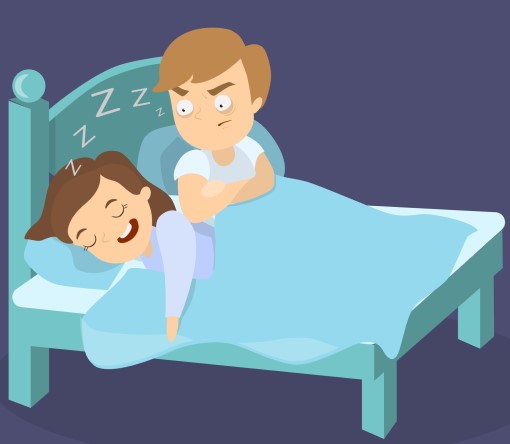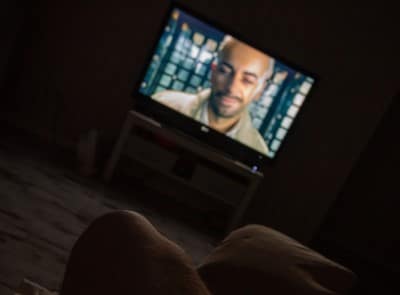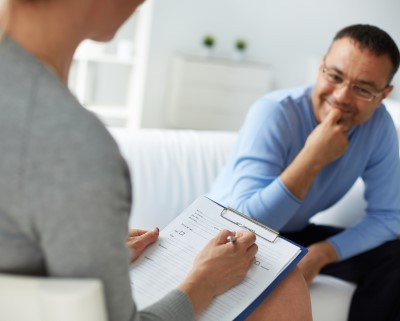
Sleep help and counseling for couples: What’s at stake and hope for better nights
By Jason Wooden, PhD and Kristal McKinney, LICSW, CMHS | July 26, 2021
If you’re dealing with a sleep crisis, it’s possible you’re up against more than you think. Chronic sleep loss can strain the best of relationships while every day relationship stress and issues can take a toll on sleep.
To avoid a downward spiral, you may need to work on both your sleep and the relationship. Your options include better sleep hygiene, couples counseling for underlying issues, individual sleep counseling, and practical remedies to improve your sleep environment.
In this article, we’ll talk about:
- Why there’s more at stake than you realize
- What poor sleep does to your health and well being
- What poor sleep does to a relationship
- Remedies for common sleep challenges
- Couples counseling for relationship issues affecting sleep
- Sleep counseling for individual sleep issues
- Other things that will make it easier to sleep
- Working together for better nights and days
When it comes to a couple’s sleep, there’s way more at stake than you realize
If poor sleep has put a strain on your relationship, you’re not alone.
If your frustrating nights are spilling into the day, join the club.
Chronic sleep loss, like any other health crises, can add a ton of stress to a relationship. Likewise, couples may lose sleep over simmering unresolved relationship issues.
Are you feeling overwhelmed and hopeless about your sleep situation?
Is it starting to affect your relationship?
Maybe one or both of you have been struggling with insomnia for a quite a while and you’ve tried talking about things but have reached an impasse…
And maybe things have also gotten sky high frustrating in your relationship during the day too…
The truth is poor sleep is hard on relationships but everyday relationship stress and challenges can be hard on sleep.
So, while you may be dealing with a sleep crisis, it’s possible you’re up against more than that if you’ve reached an impasse about your sleep issues.
Unfortunately, relationship stress during the day and poor sleep at night can get entangled.
Frustration and resentment can build up.
Unresolved issues can cause you to go to bed angry or depressed.
If you’re not careful, you can get into a downward spiral.
That means you’ve got to work on your sleep AND you need to work on the relationship.
If you’ve tried everything you can think of but can’t seem to make any headway, don’t give up!
There’s hope as there are plenty of practical things couples can do.
Let’s take a look at what you could be up against and what you can do about it so everyone gets the sleep they need.
What poor sleep does to a couples’ health and well being
So, it’s pretty obvious that when you have a bad night of sleep you wake up feeling tired, miserable, and you’re dragging throughout the day.
However, it does more to you than that.
For starters, people who sleep-deprived people don’t think as clearly, have a harder time learning, and don’t cope as well. They also may not function as well on the job or in school.
Everyday tasks become more of a challenge.
Did you know that being sleep-deprived has been found to have the same effect on the brain as being drunk?
Over the long term, chronic sleep loss can increase your risk for a myriad of health issues including diabetes, high blood pressure, cardiovascular disease, obesity, and dementia.
You’re also more at risk for anxiety and depression.
That’s pretty serious.
So, if you and a spouse or partner are sleeping poorly, there’s a whole lot it’s doing to you.
All of these things is bound to strain even the best of relationships.
What poor sleep does to a couple’s relationship
It’s bad enough what poor sleep can do to you individually.
What it does to relationship can make things worse.
If either you or someone else is sleeping poorly, sooner or later it will affect the relationship.
It’s harder to do every day normal things like household chores, parenting, spending time together, and social outings.
Besides not thinking as clearly, you don’t cope as well with the everyday ups and downs.
Physical intimacy can suffer due to suppressed sex hormones, erectile dysfunction, and low energy.
Emotional intimacy can suffer due to poor communication, irritation, anger, and stress.
You’re also more at risk for depression and anxiety which means more emotional turmoil which can take a toil of the strongest of relationships.
Research shows that couples are more likely to experience conflict and have a harder time resolving it. When it comes to everyday issues, small issues can become mountains.
It’s bad enough with one sleep-deprived person. With two, you’re really in dangerous waters and rolling the dice.
If you’re not careful, things can really build up and spin out of control.
So, if you’re a couple who is struggling with sleep, there’s a lot at stake for you, your relationship, and your family.
Remedies for the most common sleep challenges for couples
Sleep experts recommend that you keep your bedroom DARK, QUIET, and COOL for optimal sleep.
For couples, this can be challenging since everyone’s body is a little bit different and often one person can be ready for sleep before the other. Also, differing bedtime habits and sleep schedules may add to the frustration.

Nonetheless, you need a bedroom environment that supports the sleep of both of you. The good news is that they’re practical remedies worth a try.
1) Too much light or noise
He can’t fall asleep without the TV on, she needs it dark and quiet…
It’s not uncommon for one person to want to stay up reading later than another.
Likewise, many people use their TV and other electronic devices as a way to unwind at night. Unfortunately, whether it’s a TV, tablet, smartphone, or bedside lamp, the light and noise can be a real pain, especially for light sleepers.
Intruding sounds can keep someone from falling asleep and pull them out of deep restful sleep even if they’re not awake.
Bright light affects the body’s natural sleep-wake cycle and keeps you from feeling sleepy. (Even small amounts of ambient light can cause trouble.)
Your options include:
- ear plugs and a sleep mask
- ear phones for the TV watcher
- setting the TV to turn off after a certain time
- substituting the TV with white noise
As a compromise, you can agree to a lights out time after which the TV watching and device use happens in a different room.
2) Uncomfortable temperature
She likes it warm, he likes it cold…
Colder room temperatures help your body’s natural sleep process. Studies suggest that a room temperature between 60 and 67 degrees Fahrenheit is optimal for sleeping with 65 degrees being the sweet spot.
As mentioned earlier, everyone’s body is different, so you may have to experiment to find a temperature that’s workable for both of you. Also, you can make a cold or warm bedroom more comfortable for you with various remedies.
For the person who likes it warmer, extra blankets, a heated blanket or mattress pad, or warmer pajamas may do the trick.
If you’re a cold sleeper, your options include cooling sheets, a cooling mattress pad, or a small fan.
3) Snoring
Snoring is the scourge of sleep for millions of couples. It’s a frequent issue within marriages and in some cases may lead to divorce.
Fortunately, they’re things you can try before sending the snoring offender off to exile:
- ear plugs
- white noise
- sleeping on the side
- sleeping at a slight incline
- losing weight
- avoiding alcohol and sedatives before bed
You can also stagger your sleep schedules so the snore waits until their partner falls asleep before coming to bed.
It’s worth seeing a doctor to check for obstructive sleep apnea, a common sleep disorder in which breathing is repeatedly interrupted throughout the night. It’s one of the biggest causes of snoring.
Sleep apnea is a real sleep killer that can put people at risk for other serious life threatening health issues. It’s also pretty alarming to hear someone with sleep apnea stop breathing during while asleep.
Fortunately, sleep apnea is completely treatable.
4) Sharing the bed
What’s more frustrating than being on the brink of sleep and getting jostled by a bed mate?
For light sleepers, too much movement and intrusion into your space can be a real challenge.
Other practical issues include sleep positions, cuddling, getting up in the middle of night, and hogging the blanket.
For starters, you can try a bigger bed, a memory foam mattress, and bigger or separate bed covers.
5) Differing sleep schedules
She’s an early morning riser, he’s a night owl that likes to sleep in undisturbed…
Or maybe one person works days and the other nights.
When one person is more active at night and the other more active in early AM it’s bound to cause conflict unless you’re really deep sleepers.
At night there’s unwanted noise and light at night, in the morning intruding noise as the early riser gets ready for the new day. And that alarm clock can be a real pain if you’re not ready for it.
How can you make sure you both get enough restful sleep?
It’s going to be really important that you treat the bedroom as dedicated sleep zone, especially if one person is working nights. That means it’s kept dark, quiet, and comfortable.
Leisure activities can happen in another room, dressing in the bathroom.
It’s going to take a bit more creativity and organization but it’s definitely doable if the commitment is there.
Time for a sleep divorce?
Worst comes to worst, you can always try sleeping separately at least on a temporary basis.
A sleep divorce is a remedy growing in popularity where couples spend time together during the evening and then sleep separately during the night. It allows sleep deprived couples to get the rest they desperately need and can help reinvigorate a relationship
It can help bring the stress down and give you some breathing space as you work through your specific sleep issues. For some couples, it may be best solution.
Learn more:
What Is a Sleep Divorce and Should You Get One? (health.com)
How a Sleep Divorce Could Make Your Relationship Stronger (Self online)
Couples counseling to resolve relationship issues affecting your sleep
We’ve talked about how sleep issues can strain even the strongest of relationships.
It should be no surprise that simmering relationship issues can spill over into the night.
What’s happening between the two of you during the day can have a big impact at night since we bring unresolved feelings and stress to the bed.
Some of the challenges you may be struggling with include:
- built up marital and family stress
- built up resentment and anger
- unresolved conflict and arguments
- money problems
- parenting issues
- sexual dissatisfaction
- trust issues
- depression, sadness, or unhappiness
- anxiety surrounding health and the impact on relationships
There may be a lack of commitment to support someone’s basic need for a sleep-friendly bedroom environment…

Or a lack of commitment to deal with significant health issues affecting the relationship and sleep…
And you may also be having a hard time compromising to find workable solutions that support healthy sleep for the both of you.
Couples counseling can help with many of these challenges and the fall out on your sleep.
Resources:
Find a Marriage Counseling Therapist (Psychology Today)
A Full Guide To Couples Therapy (Mindbodygreen.com)
25 Best Couples Therapy Techniques, Exercises, and Activities (HealthLine)
Sleep counseling for individual sleep issues
It turns out counseling is one of the most effective treatments for insomnia.
That’s because your mind, brain, everyday behaviors, and body can interact in powerful ways that affect health and wellness.
The most commonly used type of counseling for insomnia is cognitive behavioral therapy (CBT-i for short). It can be help identify and change thoughts and behaviors that affect sleep.
Too often, people develop bad attitudes, habits, and associations that make it harder to sleep. The support sleep counselors give is individualized to your specific situation

CBT-i can also help with any stress, anxiety, and depression issues you’re dealing with that’s making things worse.
It can help keep you from getting to a downward spiral of poor sleep and more stress, anxiety, and depression.
Finally, CBT-i counseling can involve various techniques to help you develop healthier ways of thinking and habits:
Stimulus control – helps you have a more positive response to your bed at night
Sleep restriction – matches the time you spend in bed to how long you sleep
Relaxation training – teaches you how to prepare your mind and body for sleep
Biofeedback – uses sensors to help you recognize and manage the effects of stress and anxiety
Sleep hygiene training – helps you change daily habits that affect sleep
Some places to look for a sleep counselor:
Find a Sleep or Insomnia Therapist (PsychologyToday.com)
Association for Behavioral and Cognitive Therapies directory
Society of Behavioral Sleep Medicine directory
You can also ask your doctor or sleep specialist about sleep therapists.
Online sleep counseling from your home:
Sleep Easy Teletherapy
How to find an online sleep coach
Other things that will make it easier to sleep
Unfortunately, there’s a long list of things that affect sleep.
That’s why it’s important to practice good sleep hygiene, the everyday habits that set the stage for restful sleep. Poor sleep hygiene can sabotage everything else you do for your sleep.
Also, why make things any harder than they already are?
For better sleep hygiene, you should:
- keep consistent wake up & sleep times
- avoid naps
- exercise during the day
- avoid large meals, alcohol, or stimulants such as
- caffeine before bedtime
- maintain a regular bedtime routine
- avoid using TVs, laptops, or other electronics before sleep
- keep your bedroom dark, cool, quiet, & relaxing
It’s also important to see a doctor, especially if your insomnia becomes a long-term problem.
Too many people are unaware how many other medical issues can cause problems or worsen sleep. The list includes things like chronic pain, heartburn, cancer, dementia, and asthma.
You could also be living with an undiagnosed sleep disorder such as sleep apnea.
Working together for better nights and days
There’s too much at stake to accept the status quo. When you’re sleep deprived that makes everything else in life harder, including relationships.
So, have an earnest conversation sooner rather than later about how you can help each other sleep better.
Honestly share where you’re at and what you need. Be willing to compromise and try out different things.
Practice compassion and kindness.
Individual and couples counseling can give you the extra help you need.
Couples should also commit to supporting each other’s basic need for sleep hygiene.
If both of you are sleep deprived and strung out emotionally, you’ve really got a problem. To keep from getting overwhelmed, be realistic about your situation, keep things simple, and take it one day at a time.
You may also be interested in:
Insomnia and sleep disorder diagnosis
Does counseling for sleep disorders really work?
Counseling for sleep disorders
How to find an online sleep coach
5 things to know about cognitive behavorial therapy (CBT) counseling
Can sleep counseling help sleep apnea?
Is sleep apnea ruining your marriage? – 3 tips for survival and recovery
Sleep tips for police officers and law enforcement
Connect with us:
About Us
Better Sleep Simplified® was founded as a place for you to get clear and well-researched information.
Our goal is to make sure you know about your options so that you take action sooner rather than later.
Check us out on YouTube:
Watch and Learn
Helpful sleep tips, interesting sleep facts and statistics you want to know about
Affiliate Disclosure
This site is a participant in the Amazon Services LLC Associates Program and other affiliate advertising programs designed to provide a means for sites to earn advertising fees by advertising and linking to them.
Important: BetterSleepSimplified.com is for informational purposes only and is not intended or implied to be a substitute for professional medical advice, diagnosis, or treatment. Always consult a physician for sleep and health concerns. See additional information.


